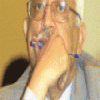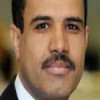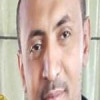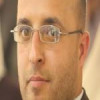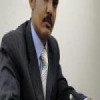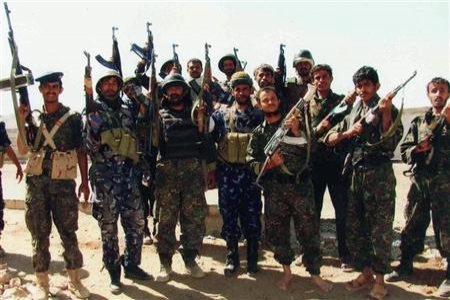
تقريرمجموعة الأزمات الدولية : الإصلاحات العسكرية – الأمنية في اليمن: بذور صراع جديد
كشف احدث تقرير لمجموعة الازمات الدولية اليوم الخميس الصادر عن المجموعة التي تتخد من بروكسل مقر لها بانه ينبغي أن يتخذ اليمن المزيد من الخطوات لإصلاح قواته الأمنية، وإلاّ فإن الانقسامات المزمنة يمكن أن تقوّض عملية الانتقال السياسية، التي دخلت مرحلة "الحوار الوطني" الذي بدأ في 18 آذار/مارس وسيستمر ستة أشهر.
ويحلّل أحدث تقارير مجموعة الأزمات، "الإصلاحات العسكرية – الأمنية في اليمن: جذور صراع جديد؟" الفساد، والإفلات من العقاب، والانقسامات القبلية والمصالح الخاصة المتجذرة التي ابتليت بها قوات الأمن اليمنية والتي باتت الآن تهدد العملية الانتقالية في البلاد التي تنخرط أيضاً في صراع مسلّح مع المتطرفين الإسلاميين المرتبطين بالقاعدة. ينبغي أن تكون إعادة الهيكلة مصحوبة بجهد كبير للوصول إلى إجماع سياسي شامل؛ حيث أن من غير المرجح أن يقبل اللاعبون الأمنيون الرئيسيون في اليمن بالإصلاحات الجوهرية بدون هذا الإجماع.
تتمثل النتائج والتوصيات الرئيسية التي يخرج بها التقرير بما يلي:
- لا تزال الانقسامات داخل القوى الأمنية موجودة على خلفية حركة الاحتجاج الشعبية لعام 2011، عندما رمى اللواء علي محسن الأحمر بثقله خلف الاحتجاجات، في حين ظل القادة الآخرون، الذين ينتمي معظمهم إلى عائلة الرئيس السابق علي عبد الله صالح، موالون للحكومة.
- منذ استقالة صالح، خفّف خلفه، الرئيس عبد ربه منصور هادي، من قبضة النظام القديم، وأمر بعدد من التغييرات في المناصب وألغى التشكيلات العسكرية التي كان يقودها اللواء علي محسن وابن الرئيس صالح. إلاّ أن التنفيذ لا يزال في مراحله الأولى، وينبغي أن تكون الإصلاحات أعمق من مجرد إجراء تبديل بعض المناصب المنفردة.
- لا ينبغي أن يتجاهل الرئيس هادي القضايا الأعمق، مثل فرض قواعد لا تستند إلى المحازبة في إدارة طواقم قوات الجيش والأمن، وإدماج رجال القبائل في القوى الأمنية وضمان الرقابة والإشراف المدنيين. تتطلب التغييرات على هذا المستوى إجماعاً سياسياً شاملاً من غير المرجح أن يقبل اللاعبون المحوريون بدونه التخلي عن قواهم المستقلة.
- ينبغي أن يأتي مثل هذا الإجماع السياسي نتيجة الحوار الوطني الذي بدأ في 18 آذار/مارس. غير أن هذه العملية ينبغي أن تتضمن مكوّنين رئيسيين كانا قد أقصيا في الماضي وهما: الحوثيون – وهم حركة شمالية بشكل أساسي غير راضية عن الحكومة المركزية – والانفصاليون الجنوبيون. من غير المرجح أن تدعم هذه المجموعات إعادة هيكلة القوى الأمنية دون اتفاق موسّع على معايير الدولة المستقبلية في اليمن.
تقول إيبريل لونغلي آلي، كبيرة المحللين في مجموعة الأزمات للشؤون اليمنية، "على الرئيس هادي أن يتجنب الحكم عن طريق المراسيم، وإجراء تعيينات أمنية تشي بنسخته هو من المحازبة. ولتحقيق ذلك، عليه أن يوضح مبررات هذه التعيينات للشركاء المعنيين وللجمهور".
يقول روبرت مالي، مدير برنامج الشرق الأوسط وشمال أفريقيا في مجموعة الأزمات الدولية، "يهدف الحوار الوطني إلى توليد حلقة إيجابية تعزز فيها إعادة الهيكلة الأمنية والحوار الوطني بعضهما البعض. وتلك مهمة عسيرة يمكن للاعبين الدوليين المساعدة في إنجازها. غير أنه يتوجب على اليمنيين أنفسهم أن يحسنوا اختيار التوقيت وتتابع الخطوات.
نص ملخص النتائج والتوصيات الرئيسية التي يخرج بها التقرير باللغة الانجليزية بما يلي:
Yemen’s Military-Security Reform: Seeds of New Conflict?
Middle East Report N°1394 Apr 2013
EXECUTIVE SUMMARY AND RECOMMENDATIONS
Ask virtually any Yemeni from across the political spectrum, and he will protest support for a professional military-security apparatus free from family, tribal, party and sectarian influence. Yet, these public assurances do not mean it is easy – far from it. Military-security restructuring is hugely critical to a successful transition, but it also is hugely difficult, because it directly threatens an array of vested interests. Although President Abdo Robo Mansour Hadi has taken important first steps, the harder part lies ahead: undoing a legacy of corruption and politicisation; introducing a coherent administrative and command structure, instilling discipline and unified esprit de corps; and continuing to weaken the old elite’s hold without provoking a backlash. All this must be done as the nation faces a redoubtable array of security challenges, including al-Qaeda attacks; sabotage of critical infrastructure; growing armed tribal presence in major cities; Huthi territorial gains in the North; and increasing violence in the South over the issue of separation.
There is a long way to go. Under former President Ali Abdullah Saleh, the military-security services were virtually immune from civilian oversight and operated largely outside the law. Loyalties flowed to individual commanders, who hailed mostly from the president’s family or tribe. Then, amid the 2011 uprising, those commanders fractured the military in two, with one group (General Ali Mohsen al-Ahmar’s) supporting protesters and the other (Saleh’s family) the regime; today, they remain powerful political players who control significant resources and sizeable slices of the economy. However much they claim to support the transition, there is good reason to suspect they will deploy their still formidable resources to sway or even thwart the national dialogue, which began on 18 March 2013 and is scheduled to last six months.
Military-security reform is, in part, about loosening the grip of the now-bifurcated old regime and, in so doing, opening political space for meaningful and effective change through the national dialogue, the cornerstone of the transition process. Hadi has made some inroads. By ordering a personnel and administrative shake-up and then scrapping two controversial military organisations – the Republican Guard, commanded by Saleh’s son, Ahmed Ali, and the Firqa, led by Ali Mohsen – he clipped his two rivals’ wings and bolstered his own hand. But dangers lurk: implementation is embryonic and will take time; some of Hadi’s appointments smack of his own brand of partisanship; Mohsen’s and Ahmed Ali’s military fates remain unknown; and, by dealing by far the more serious blows to Saleh’s camp, Hadi might unwittingly have disproportionately strengthened Mohsen’s.
Lasting institutional reform must entail more than reshuffling individual positions. Therein lies a second risk, or shortcoming. To date, Hadi’s changes appear to have been driven chiefly – and understandably – by political expediency and the urgent need to remove controversial commanders from their posts without prompting violent resistance. Other festering issues cannot long be ignored, however, such as professionalising the military-security sector; gradually enforcing non-partisan laws governing hiring, firing, retiring and rotating personnel; integrating tribesmen into the security forces without encouraging factionalism; ensuring civilian oversight and decision-making; and, more broadly, elaborating a national security strategy within which the mandate and size of the various military-security branches make sense.
In a larger sense, the key obstacle to meaningful reform remains the absence of an inclusive political pact. It is hard to see major military-security stakeholders relinquishing hard power or fully accepting change that could leave them vulnerable to domestic rivals in any circumstance; it is near impossible to imagine it when distrust runs so high. There are other, related complications: two major constituencies, the primarily northern-based Huthi movement and southern separatists, share profound scepticism toward a restructuring process from which they have been essentially excluded; they are unlikely to support decisions taken without broad agreement on the parameters of a post-Saleh state.
That is where the national dialogue comes in. Only by closely integrating the process of military-security restructuring within the larger effort to produce an inclusive political consensus – a national pact and new constitution – can the two be successful. The challenge is to generate a virtuous cycle in which restructuring and dialogue proceed in tandem and reinforce one another. It is a tricky dance. International actors can and should lend a hand. But Yemenis carry the heavier burden of getting the sequencing and timing right.
RECOMMENDATIONS
To President Hadi:
1. Communicate a clear vision to the public of how the national dialogue will guide the military-security restructuring process.
2. Redouble outreach and confidence-building measures aimed at the South to ensure greater inclusion and acceptance of dialogue decisions.
3. Work with national dialogue participants, technical committees and foreign advisers to ensure full integration between the dialogue and restructuring process.
4. Facilitate implementation of the December 2012 defence ministry reorganisation by appointing new regional commanders in consultation with the defence minister and army chief of staff; and preserve political balance by either excluding or including both Ahmed Ali Saleh and Ali Mohsen al-Ahmar.
5. Avoid the appearance of “rule by decree” by giving the technical committees and army chief of staff more prominent roles in determining and communicating next steps in the reform process.
6. Avoid, to the extent possible, regional-based appointments and explain to relevant stakeholders and the public the rationale behind new appointments and rotations.
7. Demonstrate a commitment to reform, and particularly to limiting presidential authority, by reducing the size of the Presidential Protection Unit and moving responsibility over the Missile Command to the regular command hierarchy as soon as politically feasible.
To the defence and interior ministries’ technical committees for restructuring:
8. Take the lead in communicating progress on restructuring, including concerning the role of international advisers, through regular press briefings and public symposia.
9. Consider measures to accelerate professionalisation of military-security services by rotating and retiring current officers, for example by financially encouraging voluntary retirement.
10. Develop and implement plans for administering direct payment to all soldiers and police and for training and integrating post-uprising recruits into the military-security services.
To the interior and defence ministers:
11. Adhere to established rules governing hiring, firing and rotating military-security personnel.
12. Freeze hiring until decisions are made regarding the appropriate size of defence and interior forces, with the exception of the reintegration of southern employees illegally expelled from service following the 1994 civil war.
To Generals Ali Mohsen al-Ahmar and Ahmed Ali Saleh:
13. Implement without delay orders from President Hadi, the defence minister and the army chief of staff.
14. Refrain from using soldiers as political proxies and avoid political activity.
To national dialogue participants and their UN-sponsored advisers:
15. Specify an agenda for discussion in the military-security working group, including, inter alia:
a) developing mechanisms to ensure civilian oversight over the military-security apparatus; and
b) designing a national vision governing strategic roles and responsibilities of the defence and interior ministries and their relationship with other state institutions.
To international actors supporting the Gulf Cooperation Council (GCC) initiative and implementation mechanisms (inter alia, the UN special envoy, the U.S. and other permanent members of the Security Council, the EU and its member states, the GCC and Jordan):
16. Continue to communicate clear support for decisions by President Hadi, the technical restructuring committees and the national dialogue, so as to discourage potential spoilers.
17. Provide training and information to members of parliament, civil society groups and political parties on how to forge a comprehensive national security strategy.
Sanaa/Brussels, 4 April 2013








